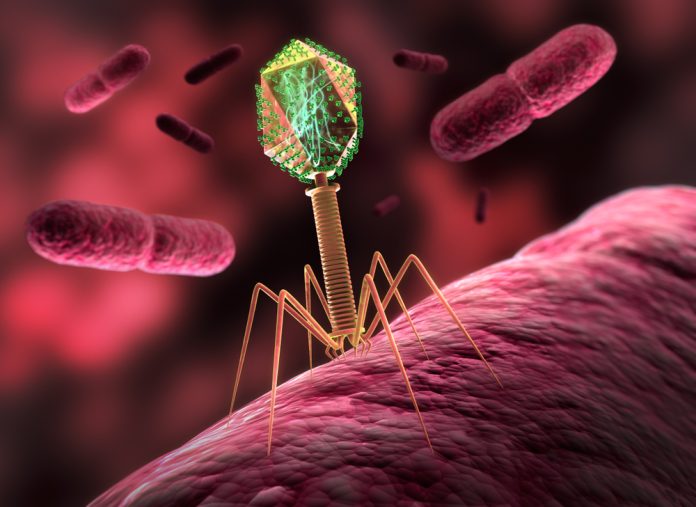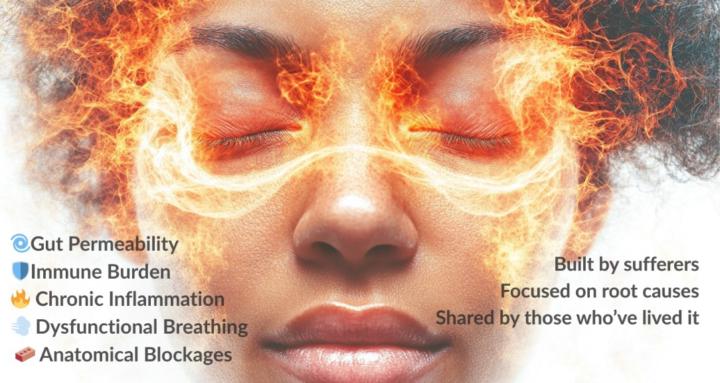
Write something
Phage Therapy
So here’s something I’ve been looking into lately — phage therapy.Basically, these are tiny viruses (don’t panic — they’re good guys!) that only target specific bacteria, like Staph aureus or Pseudomonas, which a lot of us with chronic sinusitis seem to be stuck with. The cool part? They can break through biofilms, go straight for the bad bugs, and leave the rest of your microbiome alone. Unlike antibiotics, they’re super specific and can even adapt if the bacteria fight back. They’ve been used for decades in parts of Eastern Europe, but in the UK and US it’s still very new — you’d usually need to get into a clinical trial or travel abroad. A few early cases with CRS look promising though. I’m honestly curious whether this could help those of us who’ve tried every spray, rinse, and antibiotic without much luck. Has anyone here actually tried phage therapy for their sinuses? Would you go overseas for it if it worked?
0
0

Gut Dysbiosis & Chronic Rhinosinusitis (CRS): My Current Exploration
Hey everyone — I’ve been revisiting the connection between gut dysbiosis and Chronic Rhinosinusitis. It's something I’ve looked into before, but despite experimenting with various diets and supplements, nothing had really moved the needle—until now (hopefully!). Here’s an updated overview of what I’ve learned and what I’m currently trialling, based on protocols from Dr. Dietrich Klinghardt, along with some personal observations. 🧬 Overview: What Is Gut Dysbiosis? Gut dysbiosis refers to an imbalance in the gut microbiome—where “bad” or opportunistic microorganisms outnumber the beneficial ones. This can cause systemic immune dysregulation, which is highly relevant in conditions like CRS. When dysbiosis is present, the immune system is essentially in a constant state of alert, treating the imbalance like a low-grade infection. This chronic inflammation may contribute to the ongoing sinus inflammation seen in CRS. Research connection: Several studies have shown that patients with chronic inflammatory conditions—including CRS—often have measurable alterations in their gut microbiota. One study found that CRS patients had significantly reduced microbial diversity and increased markers of intestinal permeability (aka leaky gut), which often coexists with dysbiosis. 🔍 Clinical Signs & Symptoms of Gut Dysbiosis - Bloating - Gas - Diarrhea or constipation - Abdominal pain or cramping - Heartburn or reflux - Undigested food in the stool - Brain fog - Fatigue - Mild food sensitivities - Skin issues (eczema, acne, rosacea) 🧪 Personal Signs I’ve Noticed: These are subtle and took time to observe: - Teeth discoloration and plaque buildup increases the more FODMAPs I eat (fermentable carbs). When my diet is simpler, my teeth and gums feel noticeably cleaner. - Lower-right abdominal pain, particularly near the ileocecal valve. - Mild sensitivities to foods like eggs, wheat, and caffeine—symptoms I initially ignored or didn’t link to gut health.
Chronic Tonsillitis & CRS
Hey guys, I’m off to Dusseldorf this week for what I hope is my 3rd and final cryotherapy session for my tonsils. Sharing below a paper that I found interesting that demonstrates a relationship between tonsillitis and CRS. This is a topic Dr Klinghardt speaks of at length. A study of 40 children with chronic rhinosinusitis (CRS) found that symptoms like nasal congestion, rhinorrhea, post-nasal drip, and chronic cough were significantly reduced after adenotonsillectomy. Before surgery, all patients experienced these symptoms, but after treatment, only 15.5% had nasal congestion, 20% had post-nasal drip or chronic cough, and rhinorrhea was completely resolved. Importantly, 72.5% of patients achieved complete recovery, highlighting adenotonsillectomy as a potential treatment option for CRS in certain cases. Give me a shout if you have any questions! .https://pmc.ncbi.nlm.nih.gov/articles/PMC3846210/
2
0
1-3 of 3
powered by

skool.com/chronic-rhinosinusitis-program-6064
Empowering those with chronic rhinitis & sinusitis to resolve root causes through evidence-based protocols, shared strategies, and community support
Suggested communities
Powered by
